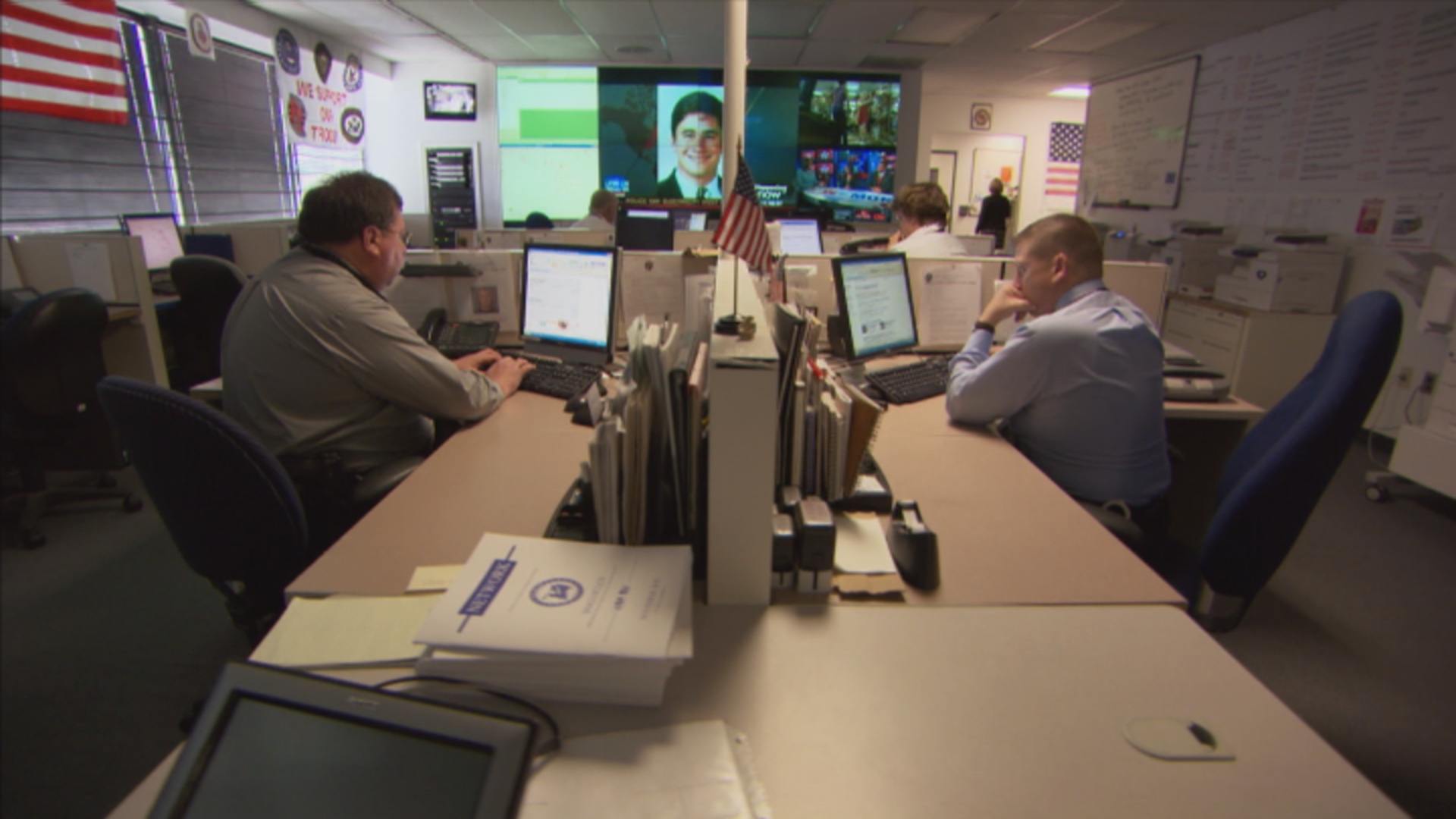Senate Report: Massive Post-9/11 Surveillance Apparatus A “Waste”

Today, a bipartisan Senate committee published the searing results of a two-year investigation (PDF) into “fusion centers,” which were created in the aftermath of 9/11 as places for state, local and federal officials to share and analyze information, in the hopes of detecting and thwarting terrorist threats.
The country’s 70-plus state and local fusion centers have “not produced useful intelligence to support federal counterterrorism efforts” and have “too often wasted money and stepped on Americans’ civil liberties,” according to the report, which goes on to criticize the Department of Homeland Security (DHS) for insufficient oversight.
Veteran Washington Post reporter and FRONTLINE correspondent Dana Priest has been on the forefront of investigating fusion centers and the massive, unwieldy, top-secret world the government has created in response to 9/11. FRONTLINE spoke with her today to understand how the centers might be affected and the prospects for reining in “Top Secret America.”
According to the congressional report, DHS estimates that it has spent between $289 million and $1.4 billion to support fusion centers since 2003. Why is there such a broad range and so little certainty of just how much money has been spent?
DHS has given an unusual amount of autonomy to each state to figure out what to do with fusion center money, which also means they don’t have good accounting of what each state spends their money on and how effective it’s been. It’s a broad problem for DHS. They were trying to give states autonomy, but it lacks the accountability that such a broad and expensive program needs.
Committee chairman Sen. Carl Levin (D-Mich.) noted that while fusion centers have not provided useful intelligence, they “may provide valuable services in fields other than terrorism,” like criminal investigations, public safety or disaster response. What’s the likelihood that the centers remain in place, but take on other activities? What’s the likelihood that they are eliminated altogether?
… I visited a half a dozen fusion centers and found that it’s very unclear as to how they make a dent in counterterorrism. … They’re like a giant sports bar for law enforcement. You’re watching television all day. You’re trying to keep up on the news, but I don’t see why you need a wall full of plasma TV screens on the wall to do that. There are a lot of bells and whistles that just don’t add anything. …
It’s clear most of them don’t have enough terrorism-related work to keep them busy, so most states have already used that money to track regular crime — to share information and set up a computer network — which is probably a good thing. But unfortunately it’s also set up a giant bureaucracy.
State budgets for crime have been cut, but states knew they could get money for terrorism. The Obama administration is looking a little more carefully at how this money is being spent at DHS, so in this or the next budget these programs could be cut back. There are many who believe that some or maybe a lot of these programs could go away without affecting our security, but it’s politically hard to do that because your opponent can say you’re weak on terrorism.
But the recession, this economy, may put pressure and scrutiny on these programs that good governance could not. This report could help do that too. …
Some fusion centers are already transitioning to general crime and whether or not DHS would want to pull the money for that is unclear. … In some states the state budget and the federal budget [share the costs of the centers] 50-50. It usually tends to be that in the small states the [federal] money is important [to their existence]. These states would never have had fusion centers without it.
The bigger centers in places like Los Angeles, New York, Washington D.C. and Colorado, that are doing more innovative work, could stay in place.
The congressional report faults DHS for not allowing sufficient oversight of fusion centers, but in the end, it’s Congress that controls the money. Who’s really at fault here?
If there was just one cabinet secretary or a committee on the Hill behind this, it would be easy to pinpoint, but DHS was created after 9/11 by a bunch of people trying to make an impression on people they were trying to tackle terrorism.
Ultimately, it’s the administration in power, right now the Obama administration, and Congress, who [are accountable] … Congress definitely holds the pursestrings.
And of course the agency, DHS, itself is still dysfunctional. The other members of the intelligence community see it like that. Even those people who wish it would work because they believe there are things DHS could do domestically that intelligence can’t, still roll their eyes and say, “What a mess.” So its reputation hasn’t gotten better.
Do you anticipate a big overhaul of DHS?
I don’t see big changes from within DHS. It’s too big. You could get micro changes in different departments over time, but it’s almost too big of an organization that combines too many functions. For example the Coast Guard is now part of DHS, as is Border Patrol.
What about the rest of Top Secret America? Are there other efforts to rein in wasteful spending to to investigate whether or not these large-scale programs are really effective?
There are some. … Today’s report just rings so true to what you saw [in our reporting for Top Secret America] two years ago. … This is probably the most dramatic of a long line of reports that were smaller. The GAO [Government Accountability Office] has done numerous reports on fusion centers, and a dozen reporters have investigated programs within their own states, which state legislatures have taken note of. Fundamentally I don’t know if change is coming; it’s just greater accountability so far.




